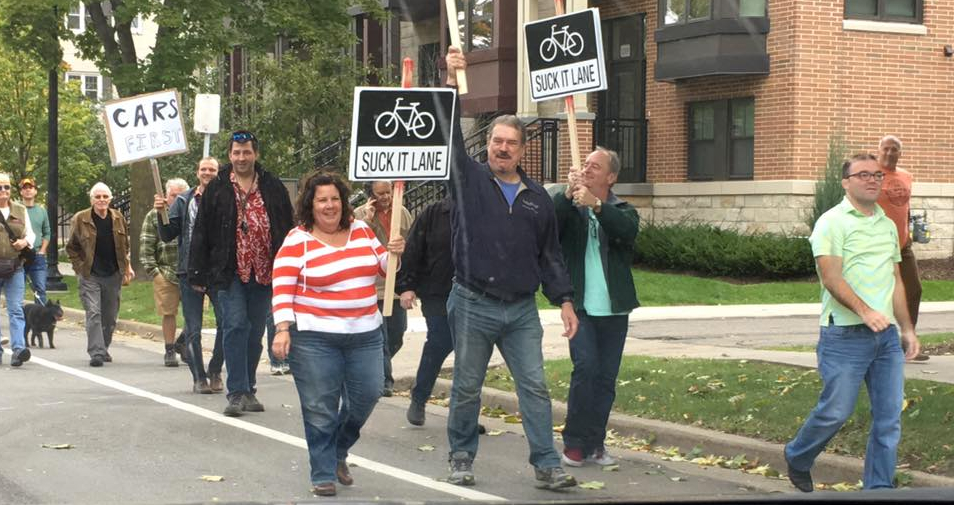Over the years, Streetsblog has reported on many, shall we say, disproportionate reactions to the installation of bike lanes. But a demonstration this weekend in Minneapolis -- replete with Nazi references -- just might take the cake.
Minneapolis Council Member Lisa Bender shared photos of the anti-bike lane rally in a Facebook post that quickly went viral. These folks really, really object to some stripes on the street.
Believe it or not, this wasn't just a bunch of random cranks. John Edwards at local blog Wedge Live reports that while the organizer is a notorious attention-seeking troll, the event drew real political candidates and a former council member:
One important thing to know is that the idea for this protest began on social media as a hoax, but became very real after spreading to credulous bike-haters on Facebook. The Facebook event was created by internet hoax artist Jeremy Piatt (known for creating the GoFundMe for Kanye West that was picked up by major national news outlets).
By all accounts, organizer Jeremy Piatt didn't show up to the protest. But here's who did show up to march against bikes: two candidates for City Council, David Schorn (Ward 10) and Joe Kovacs (Ward 7); and former Ward 10 City Council member Meg Tuthill; and let's not forget the group of people carrying "Nazi Lane" signs dripping with red paint intended to look like blood.
The anti-bike marchers began by walking in the newly installed bike lane on 26th Street, east from Hennepin to Lyndale Ave. They then walked in the bike lane, west on 28th Street. Observers on social media remarked how fortunate they were to find refuge from cars in the bike lanes.
It's tempting to dismiss this as a fringe action that happened almost by accident and only drew 20 people. Or it could reflect where local bike lane politics are headed in the Trump-era culture wars.
More recommended reading today: BikePortland reports on the results of a distracted driving sting after Oregon's new rules took effect banning the use of mobile devices behind the wheel. And TheCityFix reflects on Amazon's insistence on good transit access for its second headquarters, and what that means for cities.






